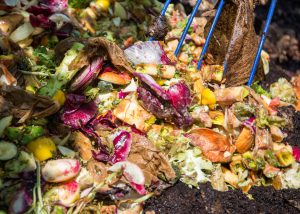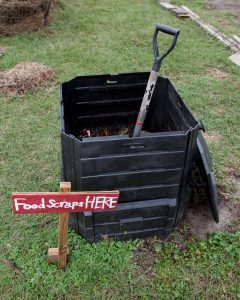
There are plenty of environmental and economic benefits of composting.
It is gaining ground among consumers and industries because it helps keep food and yard debris from landfills thereby cutting methane gas emissions. Compost may also promote soil health and enhance water conservation which may aid plant establishment.
Knowing what to include and how to properly maintain a nutrient-rich compost can be confusing with the mounds of information and myths that permeate the internet and other communication channels.
That’s why leading scientists from the University of Florida’s Institute of Food and Agricultural Sciences (UF/IFAS) are gathering with industry partners to host Get the Dirt on Compost on September 14. The workshop, offered both in-person and virtual formats, will take place from 8:30 a.m. to 3:30 p.m. at UF/IFAS Fort Lauderdale Research and Education Center (3205 College Ave., Davie, 33314). Advance registration is required. In-person registration costs $50, includes refreshments and lunch, and the registration to participate virtually is $25. Please use this link to register https://UniversityofFloridaCompostWorkshop.eventbrite.com.
Get the Dirt on Compost is a one-day workshop for consumers of all skill levels and from various industries including growers, agriculture, and horticulture. It is designed to unravel the mysteries of compost with information based on the latest research. Participants will learn the benefits of composting, what to compost and monitor, the science behind the process, how to use compost for plant nutrition, alternative soilless media, vermicomposting and much more.

“There are a lot of myths and misinformation about compost. Everyone seems to have a magic formula for the perfect compost that will grow the best plants,” said Mica McMillan, a UF/IFAS soil scientist focused on nutrition and water stress of palms and ornamentals and assistant professor in Fort Lauderdale. “Research shows we are trending more toward living sustainably and composting is an avenue for homeowners and growers. Plus, it is easier than most perceive, so come learn the science-based steps from the experts.”
Here are highlights from some of the topics:
- Compost Basics: A Review
Learn the basics of creating, monitoring and evaluating compost products. Experts will discuss compost quality standards and the science behind compost and dive into feedstock selection, utilizing bioassays, and what changes to expect over time.
- Use of Compost for Containerized Production of Native Ornamentals
Learn from case studies that utilized compost to supplement or replace peat-based soilless media to produce ornamentals native to different ecosystems of Florida.
- Plant Nutrition Considerations for Compost in Soil and Media- A Real World Evaluation
Get the facts on the advantages and limitations of compost use in Florida’s landscapes, turf and nurseries. Nutrient contents, pH and longevity factors will also be highlighted.
- Organics Recycling: Understanding Regulatory and Legislative Landscape around Composting in Florida
As an effective recycling tool, composting can address up to 30% of organic waste present in our waste stream. Despite this benefit, local and state regulations can hinder initial composting practices. This session examines existing rules and sheds light on factors that shape and influence them.
- Kenaf compost as an alternative soilless media
Concerns about climate change, the sustainability of peat, supply chain disruptions, and increased freight and substrate costs have led to broader adoption of alternative substrates. Kenaf, a warm-season, annual and fast-growing fiber crop, may provide an alternative soilless media option for Florida’s commercial growers. Learn the intricacies of producing, composting, and using kenaf.
###
ABOUT UF/IFAS
The mission of the University of Florida Institute of Food and Agricultural Sciences (UF/IFAS) is to develop knowledge relevant to agricultural, human and natural resources and to make that knowledge available to sustain and enhance the quality of human life. With more than a dozen research facilities, 67 county Extension offices, and award-winning students and faculty in the UF College of Agricultural and Life Sciences, UF/IFAS brings science-based solutions to the state’s agricultural and natural resources industries, and all Florida residents.
 0
0
